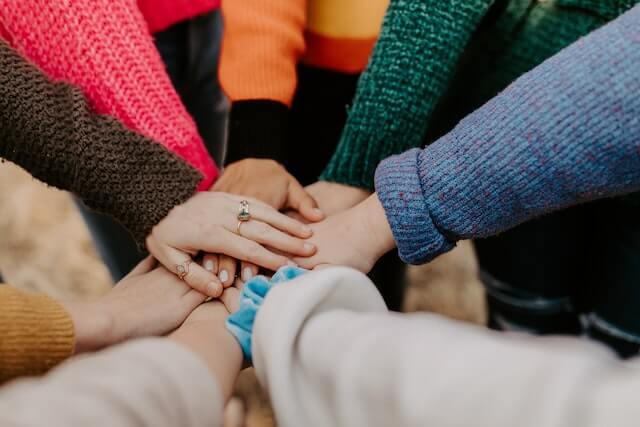Organizations can no longer function in a silo; they must take an all-hazards approach to preparedness that includes incorporating the whole community. Community engagement is essential to organizational and individual preparedness, and there are many benefits to engaging communities in preparedness efforts.
So, if you have been wondering in your heart, ‘why is it important to engage communities in preparedness efforts,’ this post will open your eyes to some reasons. Just keep reading.
Table of Contents
Why Is It Important to Engage Communities In Preparedness Efforts?

Engaging communities in preparedness efforts is not just a proactive approach; it’s essential for the success and effectiveness of any disaster response plan.
It encourages participation in Preparedness activities and makes the community better prepared for emergencies. Apart from this, it makes it easier and faster to manage the incident and address any post effect of it
In the face of an emergency, a collective and informed response from communities can significantly mitigate risks and optimize recovery.
Now, let’s see some of the reasons it is crucial to involve the community in emergency preparedness strategies.
#1: Community engagement leads to increased preparedness and resiliency
When organizations take the time to engage with their communities, they develop a better understanding of the community’s needs and assets. This understanding leads to the development of more effective and efficient preparedness plans and actions.
In addition, community engagement builds trust between the organization and the community, which is essential for effective communication and coordination during an emergency.
#2: Increased participation in preparedness activities
The more people who are engaged in preparedness activities, the more likely it is that they will take action during an emergency. That means community members engaged in preparedness activities are more likely to share information about preparedness with others, leading to increased preparedness among the general population.
#3: Increased support and participation among community members
Engaged communities are also more likely to support and participate in response and recovery efforts. When community members feel like they are a part of the process, they are more likely to trust the organization and work together to rebuild after an emergency.
#4: Community engagement leads to increased resilience
When people are engaged in preparedness activities and feel like they have a stake in the process, they are more likely to persevere in the face of adversity. That’s a good way to create social cohesion among the community members, which is essential for communities to rebound after a disaster.
The Importance of Preparedness
Preparedness is important for individuals, families, businesses, and communities. Individuals and families can reduce the impact of an emergency on their lives by taking steps to prepare for an emergency.
Businesses can reduce the impact of an emergency on their operations by preparing for disruptions. And communities can reduce the impact of an emergency on their residents by being prepared to respond and recover.
Individuals, families, businesses, and communities all have a role to play in preparedness. Preparedness starts with understanding the risks and hazards that can affect your community. Once you understand the risks and hazards, you can take steps to protect yourself, your family, your business, and your community.
There are many things that you can do to prepare for an emergency. Some of the things that you can do are:
- Build an emergency kit
- Make a family communication plan
- Stay informed about the risks and hazards that can affect your community
- Take steps to protect your property
- Prepare your finances
- Get training in first aid and CPR
By taking these steps, you can be better prepared to deal with an emergency situation. Remember, preparedness is a shared responsibility. Everyone has a role to play in preparedness.
How to Engage Communities in Preparedness Efforts

There are many ways to engage communities in preparedness efforts. Some of them include:
- Developing and implementing community outreach and education programs
- Identifying Community leaders and Influencers
- Engaging community members in planning efforts
- Conducting exercises and drills
- Building partnerships with community-based organizations
Community outreach and education programs are one way to engage communities in preparedness efforts. These programs can inform community members about the importance of preparedness and the steps they can take to be prepared.
Community leaders and influencers can also be engaged in preparedness efforts. These individuals can help to promote preparedness within their communities and encourage others to take action.
Community members can also be engaged in planning efforts. This can help to ensure that the community is prepared for a variety of potential hazards.
Exercises and drills are another way to engage communities in preparedness efforts. These activities can help community members practice their responses to various emergencies.
Finally, partnerships with community-based organizations can also help to engage communities in preparedness efforts. These organizations can provide valuable resources and support to community members.
The Role of Local Governments in Preparedness Efforts
Local governments play a vital role in preparedness efforts. Local governments are responsible for developing and maintaining emergency plans. They also coordinate with state and federal partners to ensure a coordinated response to an emergency.
In addition, local governments provide essential services during an emergency, such as law enforcement, fire protection, and medical assistance.
They also play a key role in outreach and education. Local governments provide information about preparedness to their residents and help them understand the risks and hazards that can affect their community.
By working with state and federal partners, local government can also ensure a coordinated response to an emergency.
The Role of the Private Sector in Preparedness Efforts
Yes, the private sector also plays a vital role in preparedness efforts. Businesses provide essential goods and services during an emergency. They also play a key role in the economy and can help communities recover after an emergency.
The private sector can also help with outreach and education. Businesses can provide information about preparedness to their employees and customers. They can also partner with community-based organizations to provide preparedness training and exercises.
The private sector has a unique ability to reach a large number of people with preparedness information. Businesses can use their marketing channels to promote preparedness messages. They can also partner with local and national preparedness organizations to help spread the word about preparedness.
The private sector can also help with funding preparedness efforts. Businesses can donate money, goods, or services to preparedness organizations. They can also sponsor preparedness events or exercises. By supporting preparedness efforts, businesses can help ensure that their employees, customers, and communities are better prepared for emergencies.
The Role of NGOs in Preparedness Efforts
NGOs are not left out in preparedness efforts – they play a vital role too. NGOs can provide essential goods and services during an emergency. They can also help with outreach and education.
In their own unique ways, they can encourage their employees and customers to get aware of preparedness. At the same time, these organizations can partner with community-based organizations to provide preparedness training and exercises.
Final Note on ‘Why Is It Important To Engage Communities in Preparedness Efforts’
Community engagement is essential to organizational and individual preparedness. There are many benefits to engaging communities in preparedness efforts, including increased preparedness and resiliency.
It also boosts participation in preparedness activities while also improving communication and coordination during an emergency. Every sector has a role to play in this. The local governments, the private sector, NGOs, and the media all need to get involved in preparedness efforts.
So, the next time someone asks you, ‘why is it important to engage communities in preparedness efforts.’ Just tell them that when we work together, we stand a better chance of making our communities more prepared and resilient.
That’s the purpose of this article. And we believe we have been able to do justice to the question. See you next time!
You may also like:
















